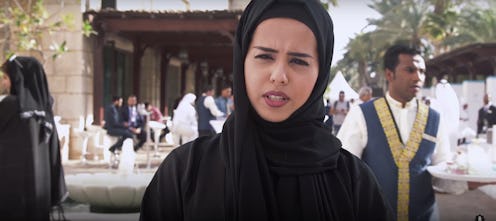News
This Is What Muslim Women Want You To Know

The stereotypes about women and men who follow Islam are many, varied, and often not based in fact. Creating a simplified image of a particular group is a natural strategy for humans. But when this simplification mixes with misinformation, stereotypes become barriers to people understanding one another. Consequently, the responsibility to set the record straight falls on those who are best informed about Muslim culture and the lives of its members — in particular, those who follow the religion themselves. And there's actually quite a bit that Muslim women want you to know, because there's a good chance that what you think you know isn't the real deal.
A 2014 report by the UNC Duke Consortium for Middle East Studies on common misconceptions about Islam provides a glimpse into the myriad stereotypes concerning Muslim women that are out there. The project dispels the misconceptions that all Muslim women wear veils and that women in the Middle East are not valued or respected.
On the topic of the hijab, for example, there is widespread belief outside of Muslim-majority countries that women are forced to participate in veiling practices. In numerous countries, however, women are not required to cover their hair or their faces, but choose to do so because of their personal religious beliefs. Women also voice strong support for the ability of Muslim girls and women to decide whether or not they will wear a veil in public, with the majority of women in 21 of 23 countries surveyed agreeing that the choice should be a right, according to the Pew Research Center.
A broader stereotype endures that Muslim women are not provided the right to make choices, whether it be in relation to their veils or their careers. In a video shot at Dubai's World Government Summit, Bustle interviewed several Muslim women on the misconceptions they've faced, and asked them to explain the reality of their day-to-day lives.
People think that we in the Middle East, women, are not capable of working, being in the work field.
But as is the case for women in most other places around the globe, Muslim women often balance careers with their family lives. Of Muslim-American women surveyed in 2008, 59 percent were employed (a greater percentage than women of other faiths), the Gallup Center for Muslim Studies reported.
One woman interviewed at the World Government Summit indirectly emphasized one of the most inaccurate generalizations, asserting that Muslim women are not in any way very different from other groups of females.
So we're similar to any other females across the world. I think we all share the same problems, the same issues, being dominated in a man's environment.
Images: Bustle